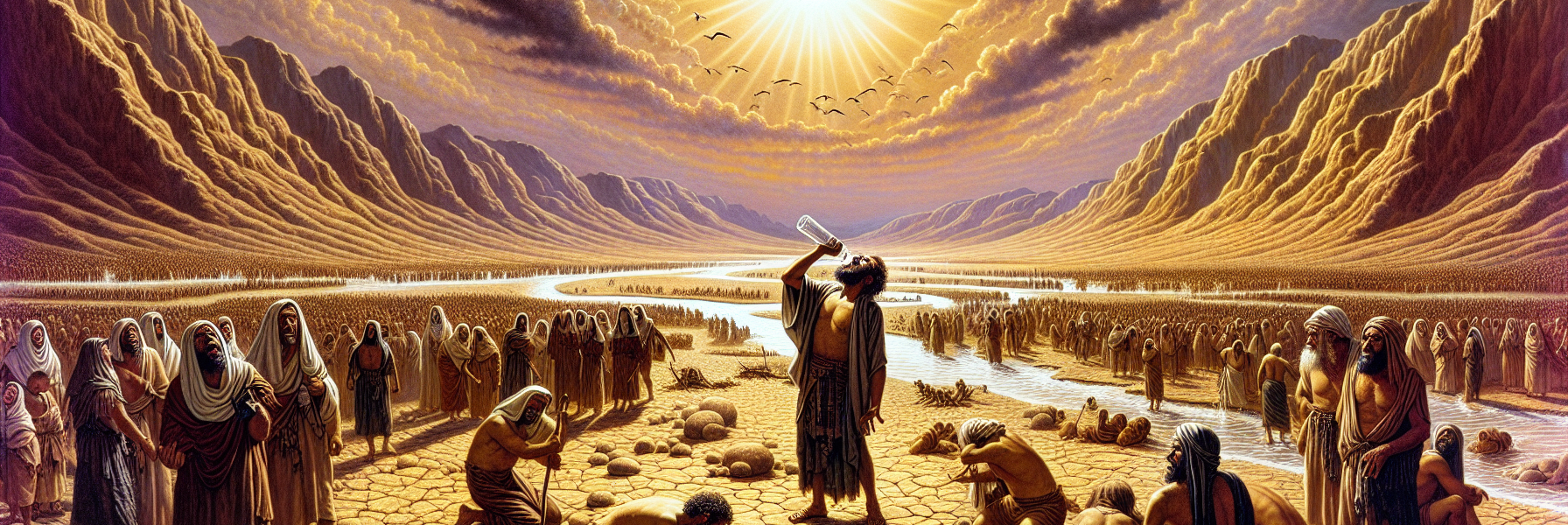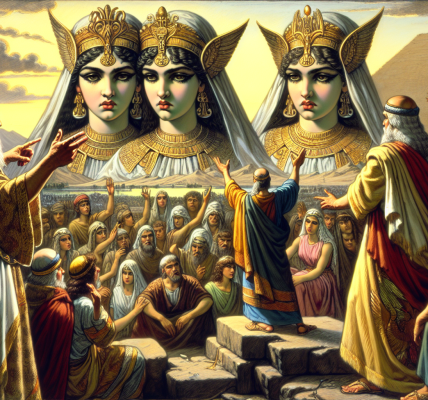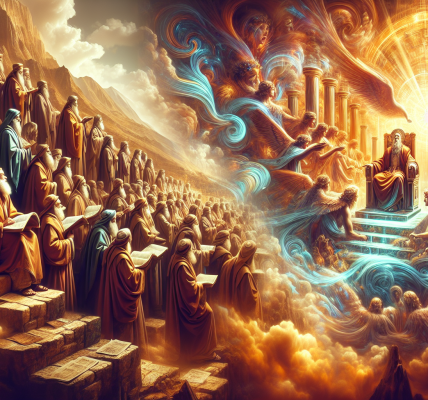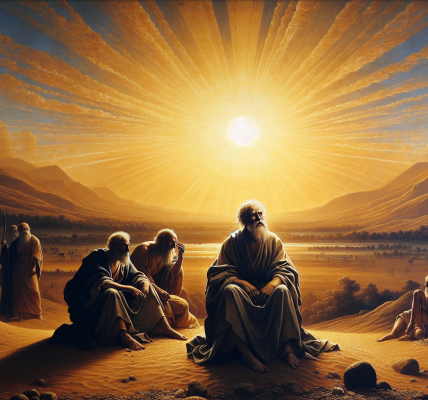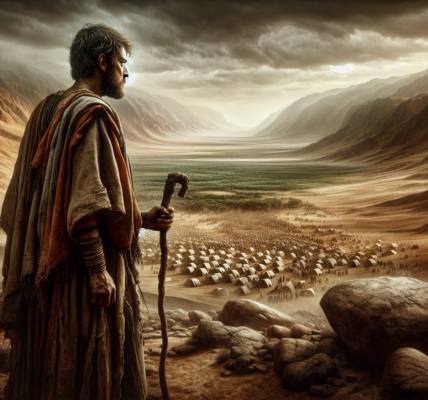**The Waters of Meribah: A Test of Faith**
The sun hung heavy over the wilderness of Zin, its scorching rays beating down upon the vast expanse of barren rock and dust. The Israelites had journeyed for many days, their sandals worn thin, their throats parched from the relentless heat. The great multitude—men, women, and children—moved slowly, their spirits weighed down by hunger, thirst, and the endless wandering.
They came at last to Kadesh, a place that should have been an oasis, but instead, they found no water. The land was dry as bones, the riverbeds cracked and empty. A murmur rose among the people, swelling into angry shouts.
“Why have you brought us up out of Egypt to die in this wilderness?” a man cried, his voice hoarse. “There is no grain, no figs, no vines, no water!”
Another woman clutched her child close, her eyes burning with desperation. “Would that we had perished with our brothers before the Lord!”
The complaints spread like wildfire, and soon the whole assembly turned against Moses and Aaron, their leaders. The elders pressed in, their faces twisted in fury. “Why have you brought the Lord’s assembly into this wilderness, that we and our livestock should die here?” they demanded. “Why did you make us leave Egypt, only to bring us to this wretched place?”
Moses felt the weight of their words like stones upon his chest. He had led them through the Red Sea, had stood before Pharaoh, had borne their grumbling for forty years. Yet here they were again, faithless, accusing him as though he, and not the Lord, had brought them out of bondage.
He turned away, his heart heavy, and sought the presence of the Lord. Aaron followed him, his own face lined with worry. Together, they fell facedown before the entrance of the Tent of Meeting, where the glory of the Lord appeared to them.
A voice, mighty yet tender, spoke from the cloud of divine presence:
**”Take the staff, and you and Aaron gather the assembly. Speak to that rock before their eyes, and it will pour out its water. You will bring water out of the rock for the community and their livestock to drink.”**
Moses rose, the staff of God in his hand—the same staff that had struck the Nile, that had parted the sea. He and Aaron called the people together before the great rock that stood like a silent sentinel in the midst of the camp. The Israelites watched, their eyes filled with doubt and desperation.
Moses felt the heat of their gaze, the pressure of their unbelief. For a moment, his own frustration swelled within him. Had they learned nothing? Had all the miracles of the Lord meant nothing to them?
“Listen, you rebels!” he shouted, his voice trembling with emotion. “Must we bring you water out of this rock?”
And before the people, he raised the staff—not to speak to the rock as the Lord had commanded—but struck it. Once. Twice.
A great roar erupted as water burst forth from the stone, gushing in a mighty torrent, rushing over the dry ground, filling the empty basins, spilling into the mouths of the thirsty. The people gasped, falling to their knees, drinking deeply, their children laughing as the cool streams washed over their feet.
But the Lord’s voice came again, stern and sorrowful:
**”Because you did not trust in Me enough to honor Me as holy in the sight of the Israelites, you will not bring this assembly into the land I have given them.”**
Moses stood frozen, the staff still in his hand. The weight of the Lord’s words crashed upon him. He had acted in anger, not in faith. He had taken credit for the miracle, not given glory to God.
The waters of Meribah—the place of quarreling—flowed freely, but the cost of disobedience was great. The Promised Land, so near yet now so far, would remain beyond his reach.
As the people drank their fill, Moses turned his face toward the horizon, where the sun dipped low, casting long shadows over the wilderness. The journey would continue, but he now walked with the knowledge that his own failure had sealed his fate.
Yet even in judgment, the Lord had provided. The water still flowed, a reminder that though men falter, God remains faithful.
